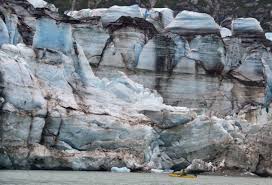gustabus backpack

We're sorry, but we could not fulfill your request for /2016/11/22/gustavus-team-wins-deloitte-accounting-competition/ on this server. An invalid request was received from your browser. This may be caused by a malfunctioning proxy server or browser privacy software. Your technical support key is: 7af8-dddd-1756-6707 You can use this key to fix this problem yourself. If you are unable to fix the problem yourself, please contact news at gustavus.edu and be sure to provide the technical support key shown above. in blue currently out of stock and won't let me add regular price 5.97 School Tools is a school supplies drive for children from low-income and homeless families. This drive is an easy way to join together with area faith communities and organizations to help children in our community who are affected by poverty.Event DetailsHost a School Tools DriveJuly 17 - August 14, 2016Bring Donations on Delivery DayTuesday, August 16, 201610 a.m. - 12 p.m. and 3:30 - 5:30 p.m. LocationInterfaith Action of Greater Saint Paul1671 Summit Avenue, Saint Paul (See Map)Ample street parking is available.

Representatives from each of the recipient organizations will be on hand to help unload your vehicle and sort the donations while you enjoy refreshments.School Tools PacketsWe provide all of the materials needed to hold a drive at your faith community or organization. to request a packet in the mail or download the documents below to help promote this drive at your faith community or organization.By the NumbersEach year, we collect new backpacks, calculators, and other school essentials to benefit school children from low-income and homeless families being served through nine different programs in the East Metro.Just one of these partners, the St. Paul Public Schools Title 1 Program for Homeless Children and Families, serves nearly 2,000 homeless students each year.Last year, together with 27 area faith communities, plus individual donors, we collected more than $20,000 of school supplies filling 525 backpacks for local students in need.Supply ListHigh priority supplies Backpacks, 3-ring binders, Calculators, Facial tissueOther supplies needed Spiral notebooks, Composition notebooks, Pencils, Pens, Markers, Folders, School boxes, Erasers, Highlighters, Pencil sharpeners, Colored pencils, Rulers, Glue sticks & bottles, Loose-leaf paper, Scissors, Crayons, USB Flash DrivesDonateWe use monetary donations to purchase needed supplies not collected at the drive.

Make checks payable to Interfaith Action with “School Tools” in the memo line. When making a donation online, please designate “School Tools” in the text field.Get InvolvedHost a drive at your faith community or organization.Help deliver and sort items on delivery day.For other ideas on how you can get involved, please contact us.LinksDownload the materials below to help promote this drive.Associate Professor in Geography, Environmental Studies, and LALACSLike many geographers, I study society’s interactions with the environment.
backpack 55x40x23cmThe study of nature-society addresses age-old questions like how we procure food and how we prepare for and cope with natural disasters to how we understand our relationship with the natural world.
buy homelite backpack blowerIt addresses recent and pressing questions like climate change, globalization, loss of biodiversity, sustainability, and social justice.
buy homelite backpack blower
The big research questions that interest me revolve around the interactions of humans with the environment, especially those involving land transformation: the how and why of land use and land cover change, and the implications of these changes for ecosystems and human societies. Additionally, I am interested in how society encounters the natural world through disaster. Much of my research is based in Haiti, where I lived and worked prior to graduate school, and where I continue to visit as frequently as possible.
gas guzzler backpack Land transformation is exceedingly important in Haiti, which has been an agrarian nation since its inception yet also is increasingly urbanized. Deforestation, a global concern, is seen as especially critical in Haiti. In one current study I seek to understanding why land transformation has occurred in a mountainous region of Haiti that has been devastated by numerous fatal flash flood disasters.

The explanations given by residents of the region differ markedly from the “received wisdom” as exemplified in the media and other outlets. How do the explanations differ, and why? What are the implications of accepting one set of explanations or the other? Haiti has seen more than its fair share of disasters in recent years. This is of little surprise since one of the key “ingredients” for a disaster is a vulnerable human community that encounters a hazard. Haiti’s poverty makes its communities exceptionally vulnerable to earthquakes, flash floods, mud flows, and other hazards of the environment. Currently, I am interested in how Haiti’s “informal” assistance sector—generally people’s family and friends—provides material aid following disaster. What lessons might the formal aid sector—governments and relief groups and the like—adapt from the informal sector? My research following the 2010 earthquake in Haiti suggests that 1) the informal aid sector plays nearly as large a role as the formal sector, and 2) that the informal sector’s preference for cash transfers over aid-in-kind (like food aid) is welcomed by aid recipients (and, in addition, helps support the local economy).

I am also very interested in how we teach geography and environmental studies, especially in a liberal arts fashion that encourages critical thinking, problem-solving, writing, and developing values. Some of my most recent research focuses on pedagogy in geography, especially related to two of my courses, GEG/ENV-250 Nature and Society and GEG-242 Research Methods in Geography. Beyond academic geography, I love to travel, garden, read, backpack, and be with family. Currently, seeing the world as it is discovered by my young children is my greatest joy.EducationB.A. Eastern Mennonite University; M.S. Oregon State University; Ph.D. Clark UniversityAreas of ExpertiseHaiti, human-environment interactions, land change, remote sensing, disasters, and political ecology GEG-105Physical Geography Lab132014/FA, 2014/SP, 2013/FA, 2013/SP, 2012/FA, 2012/SP, 2011/FA, 2011/SP, 2010/SP, 2009/FA, 2009/SP, and 2008/FAGEG-105Physical Geography122014/FA, 2014/SP, 2013/FA, 2013/SP, 2012/FA, 2012/SP, 2011/FA, 2011/SP, 2010/SP, 2009/FA, 2009/SP, and 2008/FAGEG-250Nature & Society52014/FA, 2013/FA, 2013/SP, 2012/FA, and 2011/FAENV-250Nature & Society52014/FA